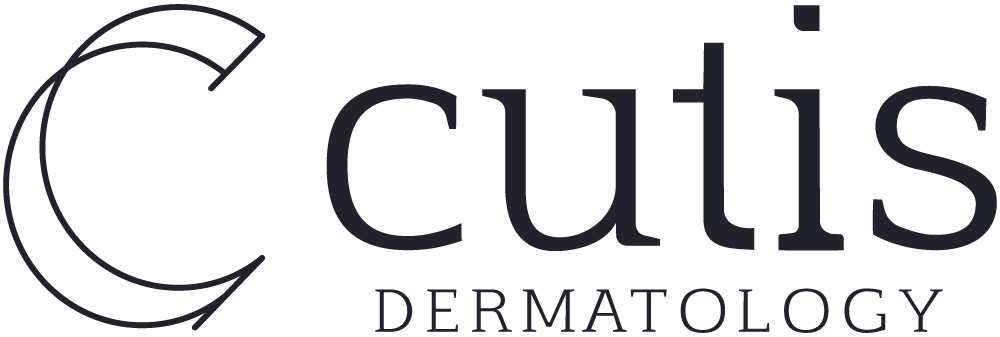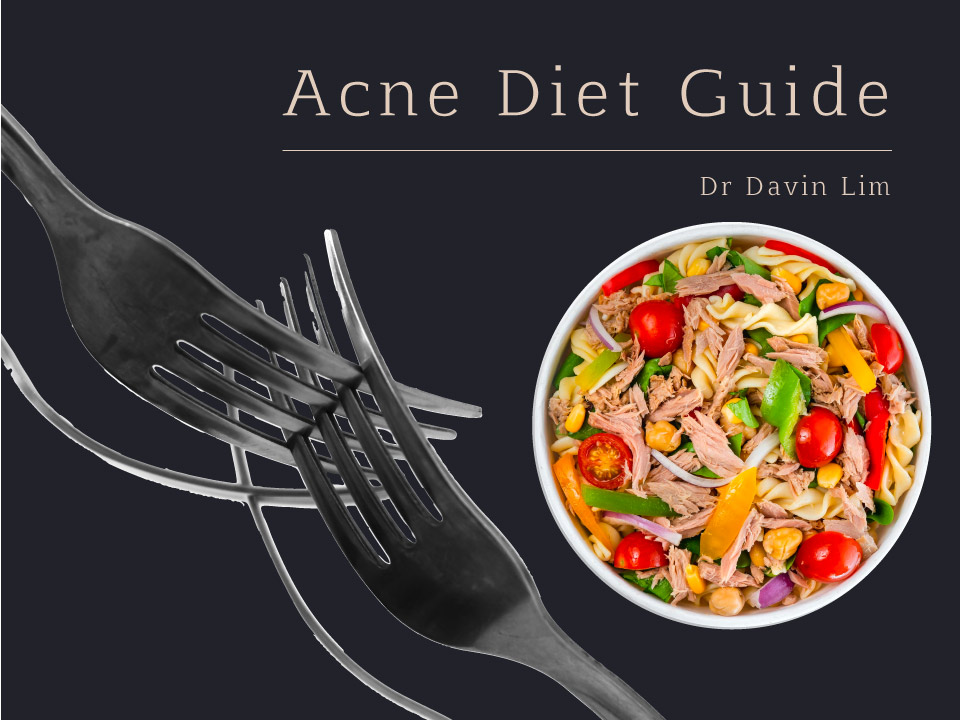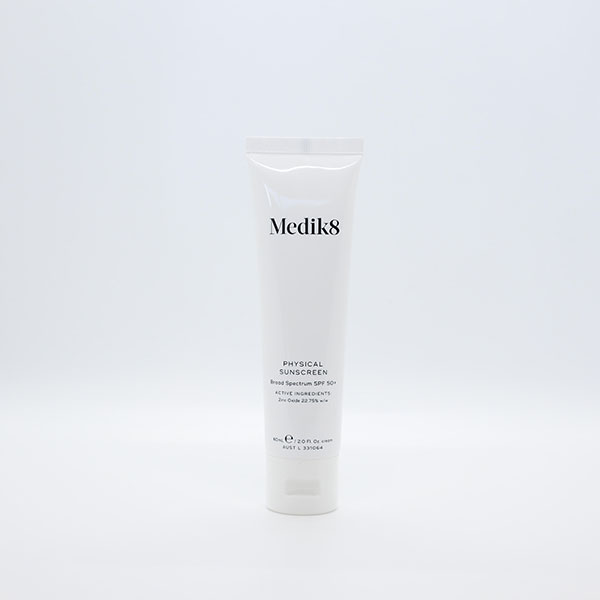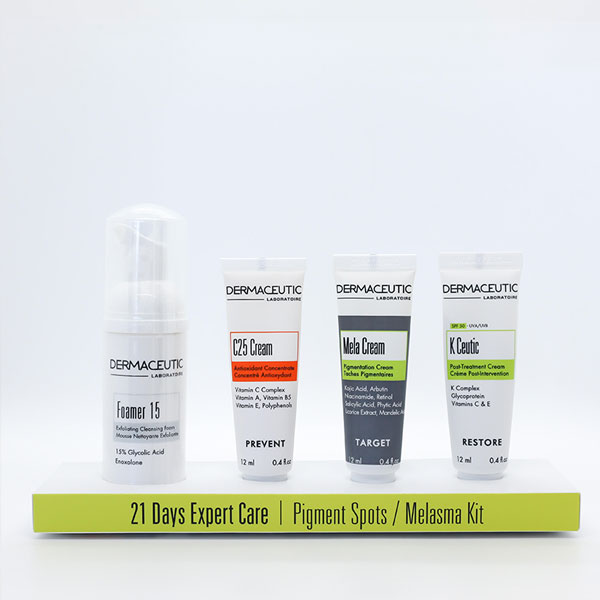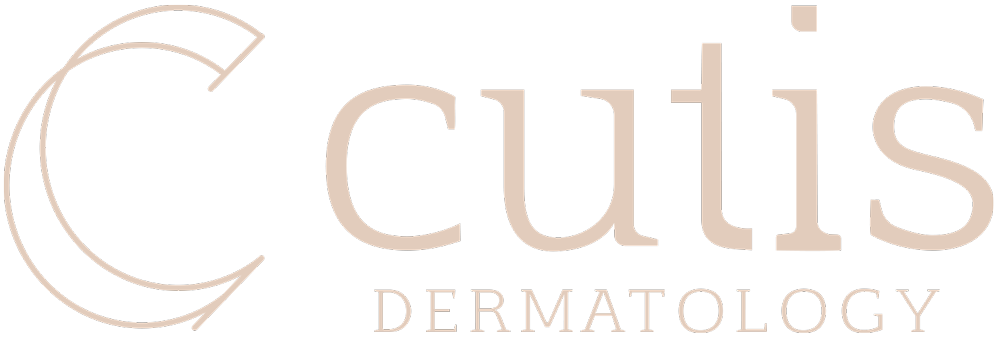Don’t underestimate the power of diet. Eating healthy will amplify your gains with any acne treatment. An anti-acne diet consists of eating organic nutrients, low in sugar, processed food groups and dairy.
Key Points
- An anti-acne diet can accelerate your results from acne treatments
- Fluctuations in sugar coupled with hormones are the primary culprits
- A low GI, sugar free diet, high in natural organic foods is a good starting point
- Dairy products including milk, yogurt and cheese can flare up acne
- Zinc supplements can help in some cases
Acne Diet Guide at a glance
Our results speak for themselves
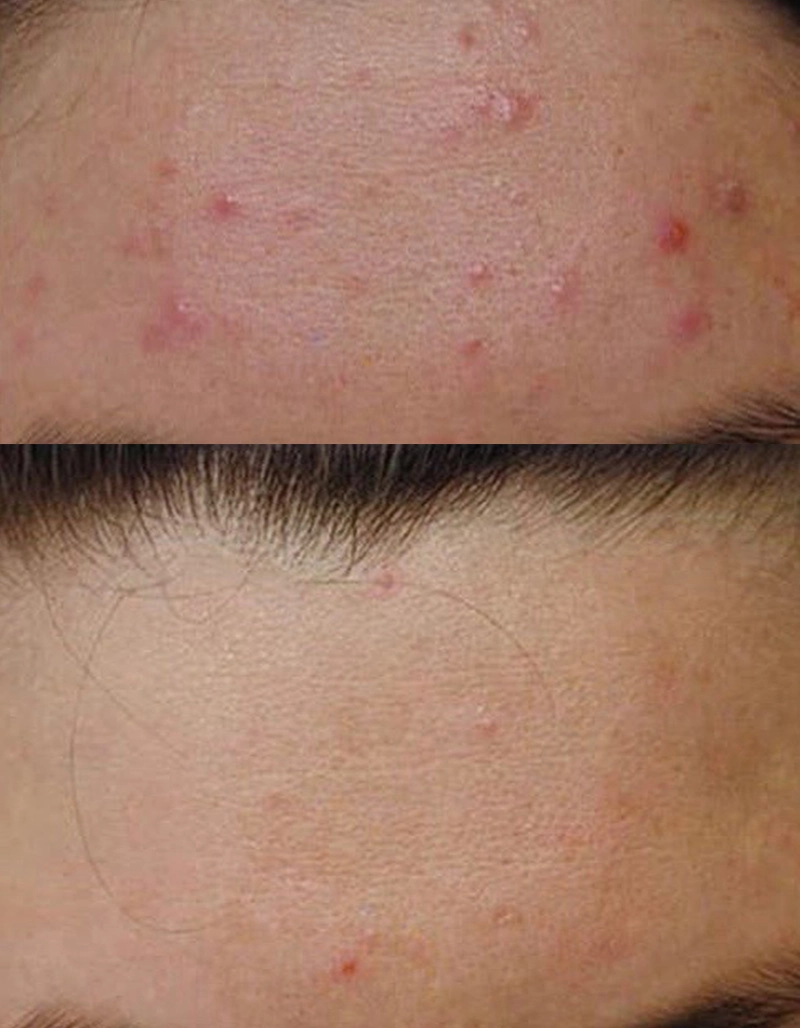
Before
After
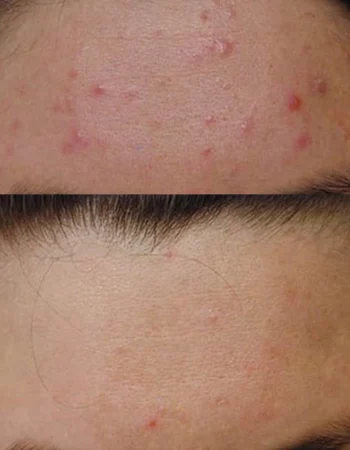
Medical therapy for acne
Ask us more about this treatmant
Preferred Consultation
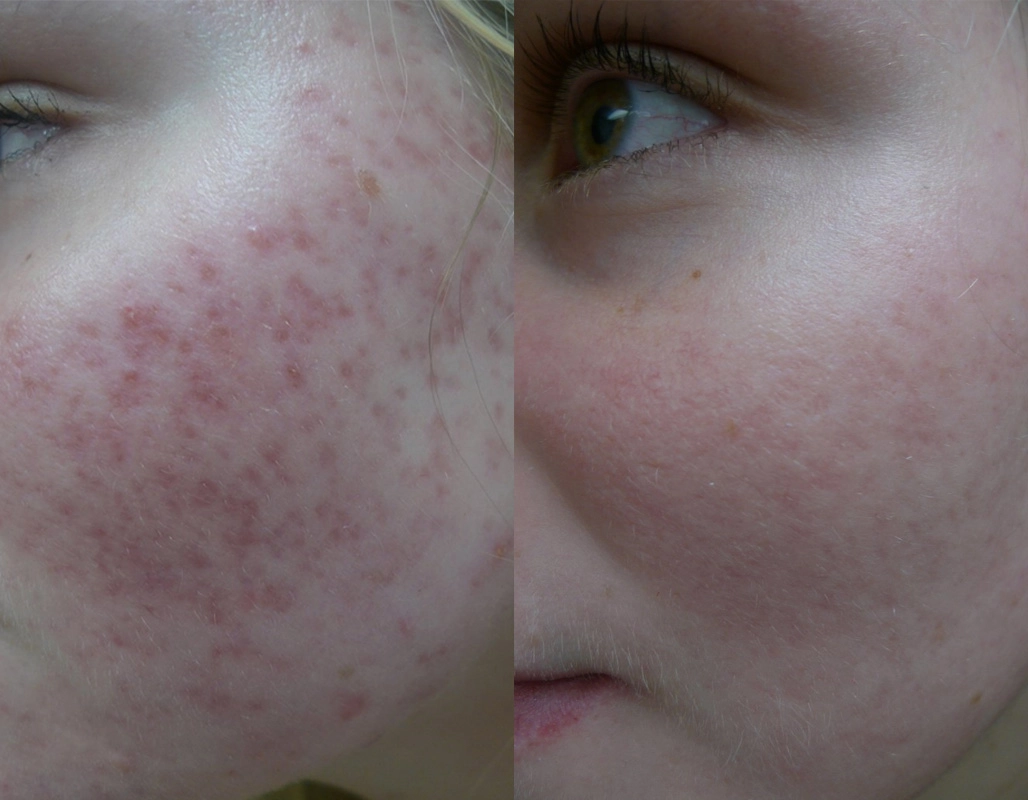
Before
After
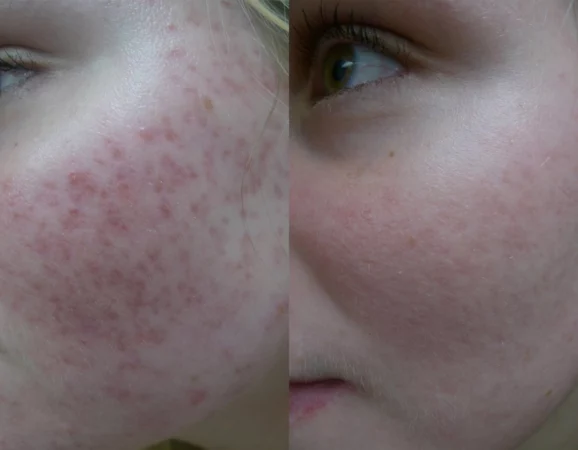
Topicals to treat acne, vascular laser therapy to reduce redness
Ask us more about this treatmant
Preferred Consultation
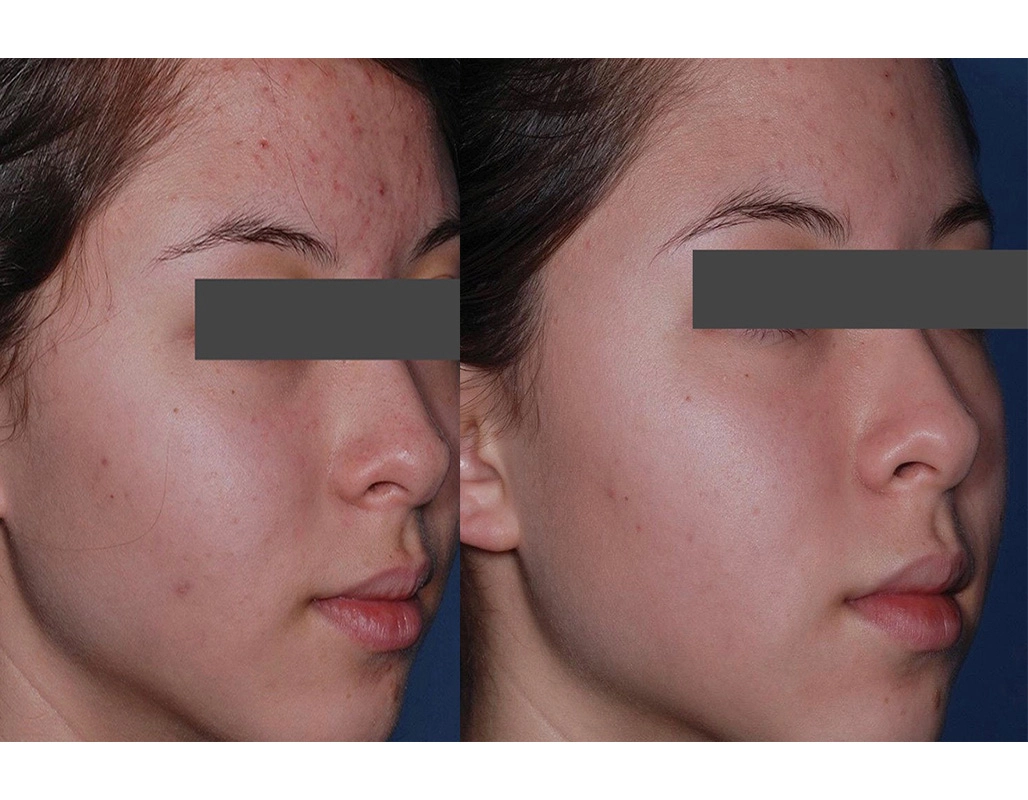
Before
After
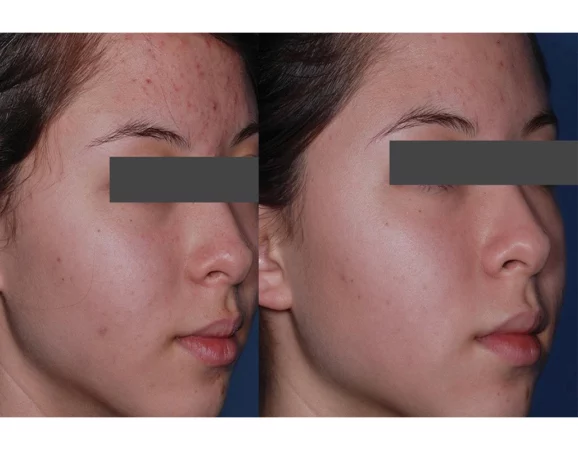
Obagi has medical grade therapy for acne. Benzoyl peroxide combined with active wash, cleanser & moisturizer
Ask us more about this treatmant
Preferred Consultation
FAQs
What is the anti-acne diet?
This is a relatively new methodology for treating acne and is encouraged by most dermatologists. The diet focuses on reducing fluctuations in sugar levels, mediated by IGF or insulin like growth factor, additionally reducing diet related hormones (meat, cattle, poultry, dairy) can help. In summary-
- Eat non-processed foods. This includes pasta, white rice, and high glycaemic index foods.
- Reducing your sugar intake to keep your blood sugars stable.
- Cutting out dairy. This means milk, yogurt and cheese.
A diet can be useful in some cases (avoids you seeing a dermatologist), however even if you are on medications like Accutane, an anti-acne diet can speed up your gains.
How can you amplify your acne treatments?
We believe that good nutrition can improve your clearance rate of acne, no matter what medication or treatment you are on. A few simple things that can help include-
- Taking care of your skin with good hygiene. Wash twice a day.
- Use SPF. This reduces the number of brown marks (post inflammatory hyperpigmentation) as well as red marks (post inflammatory erythema).
- Don’t pick. This leads to scarring. Acne patches are super handy. They cost 5 to 20 cents each and can be bought at any major pharmacy.
- Treat scars early. Early scars are much easier to remodel compared to late scarring. Your dermatologist will discuss scar directed treatments including peels, lasers, microneedling and LED therapy.
Why do most people give up on the acne diet?
Unlike a caloric restricted diet, remaining on an acne diet takes a whole heap of dedication. Why? Because for diets to be effective you must be super strict, with no ‘days off’. Hear us out.
For weight loss, you can have days off, namely you can make up for calorie rich days by reducing calories on other days. You can’t get away with it if you are on an anti-acne diet. If you are sensitive to dairy, sugar, and processed foods, it means total elimination for months to years.
What other supplements & natural remedies are there for acne?
Before seeing a dermatologist, you may want to consider natural remedies. Dieting is a good starting point. From there you can add some zinc sulphate supplements. Another option is to add natural phototherapy, taking care you don’t burn. A sensible visible light prescription is as follows-
Use a high factor non-comedogenic non tinted sunscreen. Apply 15 minutes before sun exposure. Get some sensible morning or afternoon sun for 15 to 20 minutes. Visible light in the blue and red spectrum can kill acne forming bacteria. If this is too much of a hassle, book a series of phototherapy sessions at Cutis. Our LED sources are much stronger and safer in comparison to direct sunlight.
Don’t underestimate the importance of diet when it comes to acne. A low sugar, no dairy diet that omits processed foods can help most acne sufferers, regardless of age.
Can acne be related to gluten?
Gluten is blamed for everything – from headaches through to infertility and acne. If you have symptoms of gluten intolerance such as skin rashes, tummy pain & GI upset, you should consult your GP for a gluten sensitivity test. If it shows you are indeed gluten intolerant, then certainly try out a gluten free diet to see if this clears up your acne. Be guided by your dietician.
In reality, gluten insensitivity is a very rare cause of acne, dermatologists normally see 1-2 cases of gluten induced acne (low evidence) every 4-5 years.
Do natural remedies like tea tree oil and witch hazel work?
Yes, there is some evidence that tea tree oil can help some cases of acne. It works by killing fungi and bacteria and is anti-inflammatory. The allergy rate however is concerningly high.
Witch hazel and apple cider vinegar have a lower level of evidence in the management of acne. If you are after a natural way to treat acne, don’t see a dermatologist, as we prescribe drugs not fairy dust.
Who to see if diet & home skin care doesn’t work?
You may want to see a GP before seeing us. They can prescribe oral antibiotics, antihormonal treatments as well as topical retinoids. It takes 2-4 months before normal prescription medications start working, so be patient.
Why is it important to treat acne early and effectively?
The most predictive factor for acne scarring is the time taken to effective control. This means control must be absolute, especially if you are genetically prone to scars. Dermatologists, if given a chance, will control your acne and in most cases place it into remission.
